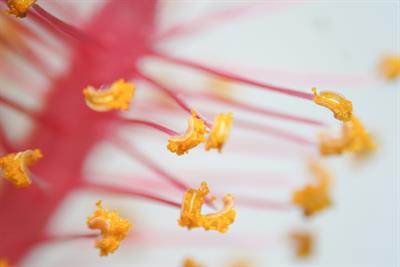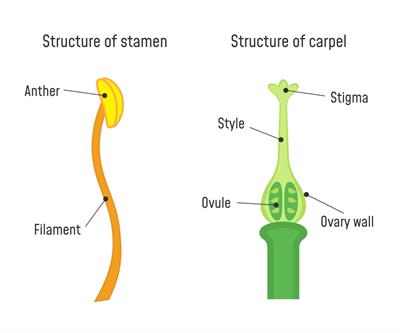PDF chapter test TRY NOW
Flowers are the reproductive part of the plant and helps in sexual reproduction to produce fruits and seeds.
- Stamens are the male part of a flower that consists - anthers (top of the stamen) and filament (stalk of filament).
- Anther contains pollen grain which produce the male gametes.
- Pollen grains have a tough coat which is protective and prevents from drying up.


- The pistil is the female reproductive part.
- Pistil consists of stigma, style and ovary. Stigma is the top part of a pistil, followed by the style (middle part) which connects the stigma to the ovary (base part of the flower). Ovary is the swollen (lowest) part of the pistil.
- Ovary encases ovules (one or many) that are egg-like structures.
- The female gamete or the egg is developed in an ovule.

In sexual reproduction, the male and the female gamete fuse to form a zygote by the process called fertilisation.
Types of flower
1. Flowers that contain either pistil or stamens alone are called unisexual flowers or incomplete flowers.
Example:
Watermelon, papaya and cucumber produce unisexual flowers
2. Flowers that contain both stamens and pistil are called bisexual flowers or complete flowers.
Example:
Sunflower, lily, rose, hibiscus and mustard have bisexual flowers.
Important!
Both male and female unisexual flowers may be present in the same plant or in different plants.
